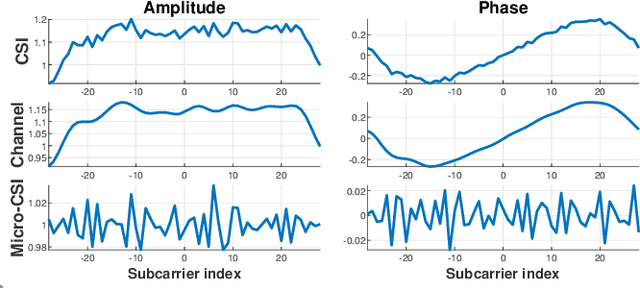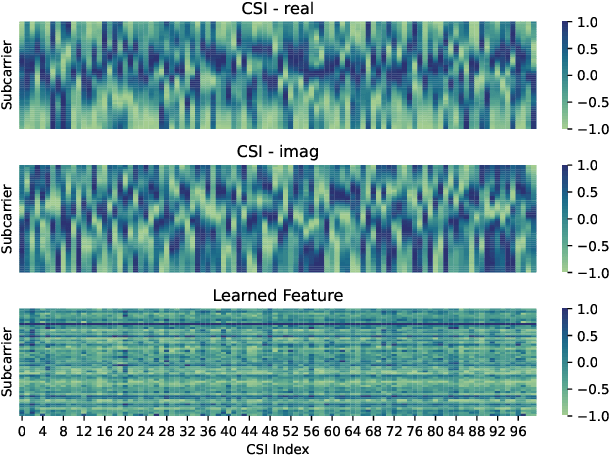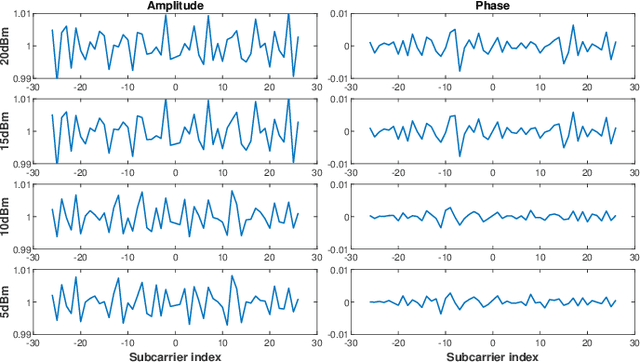DeepCRF: Deep Learning-Enhanced CSI-Based RF Fingerprinting for Channel-Resilient WiFi Device Identification
Paper and Code
Nov 11, 2024



This paper presents DeepCRF, a new framework that harnesses deep learning to extract subtle micro-signals from channel state information (CSI) measurements, enabling robust and resilient radio-frequency fingerprinting (RFF) of commercial-off-the-shelf (COTS) WiFi devices across diverse channel conditions. Building on our previous research, which demonstrated that micro-signals in CSI, termed micro-CSI, most likely originate from RF circuitry imperfections and can serve as unique RF fingerprints, we develop a new approach to overcome the limitations of our prior signal space-based method. While the signal space-based method is effective in strong line-of-sight (LoS) conditions, we show that it struggles with the complexities of non-line-of-sight (NLoS) scenarios, compromising the robustness of CSI-based RFF. To address this challenge, DeepCRF incorporates a carefully trained convolutional neural network (CNN) with model-inspired data augmentation, supervised contrastive learning, and decision fusion techniques, enhancing its generalization capabilities across unseen channel conditions and resilience against noise. Our evaluations demonstrate that DeepCRF significantly improves device identification accuracy across diverse channels, outperforming both the signal space-based baseline and state-of-the-art neural network-based benchmarks. Notably, it achieves an average identification accuracy of 99.53% among 19 COTS WiFi network interface cards in real-world unseen scenarios using 4 CSI measurements per identification procedure.
 Add to Chrome
Add to Chrome Add to Firefox
Add to Firefox Add to Edge
Add to Edge